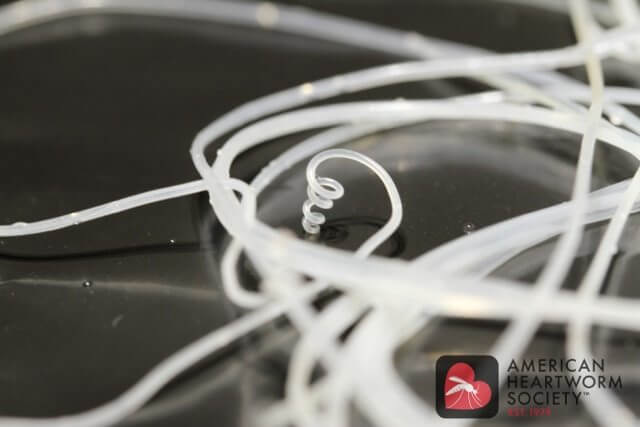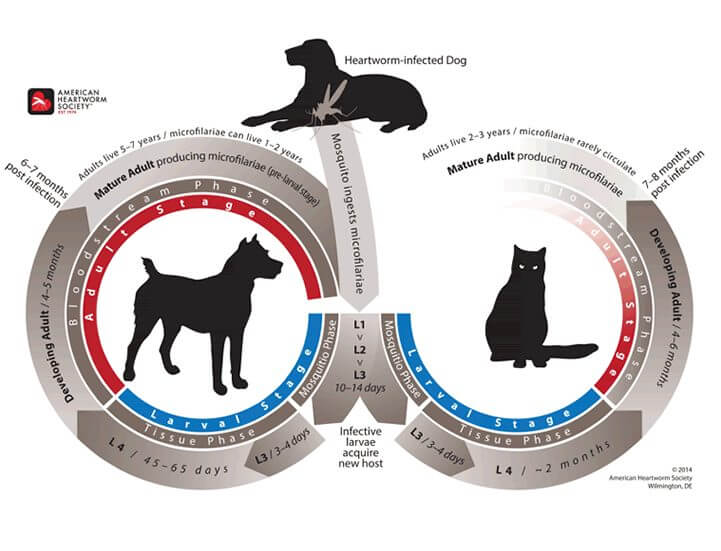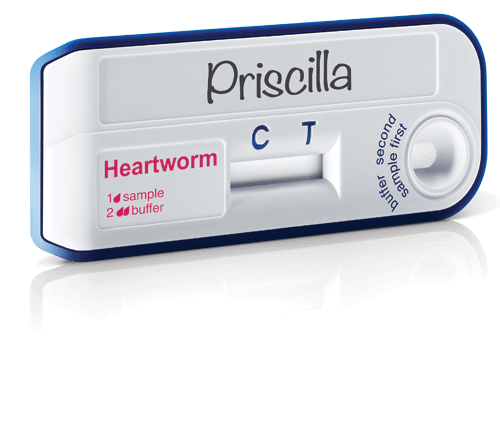Heartworms in Gallatin County…
Can you believe Spring is almost over? Where has the time gone?! That being said, it’s time to start thinking about heartworm prevention, but you may be asking yourself, “Is it really a problem to be concerned with in our area?”
The answer is yes! Let’s first start with some fun and interesting facts about heartworms:
1. Heartworms live for a long time
Did you know that it takes about six months for the larvae to fully mature?
- The average life span in dogs is 5 to 7 years.
- The average life span in cats is 1 to 3 years.
The test that we carry is called an antigen test, which only detects adult heartworms.
2. Cats can get heartworms too
They are called ‘atypical’ hosts, but that doesn’t mean that they are not susceptible to them.
Most larvae do not reach the adult stage in cats due to their small heart size. The top four symptoms to watch for in cats are:
1. Stumbling
2. Fainting
3. Seizure activity
4. Fluid in the abdomen
There is no treatment available for cats. Usually by the time the symptoms are seen, it is usually too late.
3. They live in other species too
Here is a fun fact for you…
Did you know they can live in Ferrets and Sea Lions?
4. They have been diagnosed in ALL 50 states
The American Heartworm Society updates an incident map for the United States every three years. Click here to view the 2016 map.
The life cycle of the larvae is very dependent on temperature. That is why you generally see higher numbers in the states that have a warmer humid climate. Prevention is very effective. It is rare that it doesn’t work.
The American Heartworm Society recommends testing yearly and giving prevention monthly. For more information, click here for resources, tools, and videos.
We recently had a dog come up positive during routine testing. He had spent his entire life in Montana. There has also been mention from other clinics in our area with other positive heartworm dogs since the beginning of this year.
5. Testing is VERY important
It’s the second-best thing to giving your pet monthly heartworm prevention. It could save their life!
Make an appointment today and take advantage of the $5 off manufacturer coupon!













